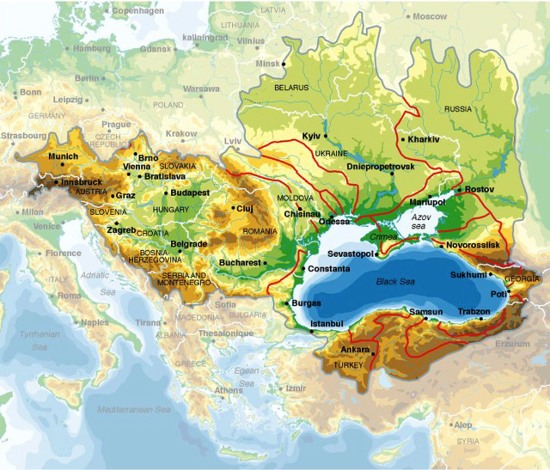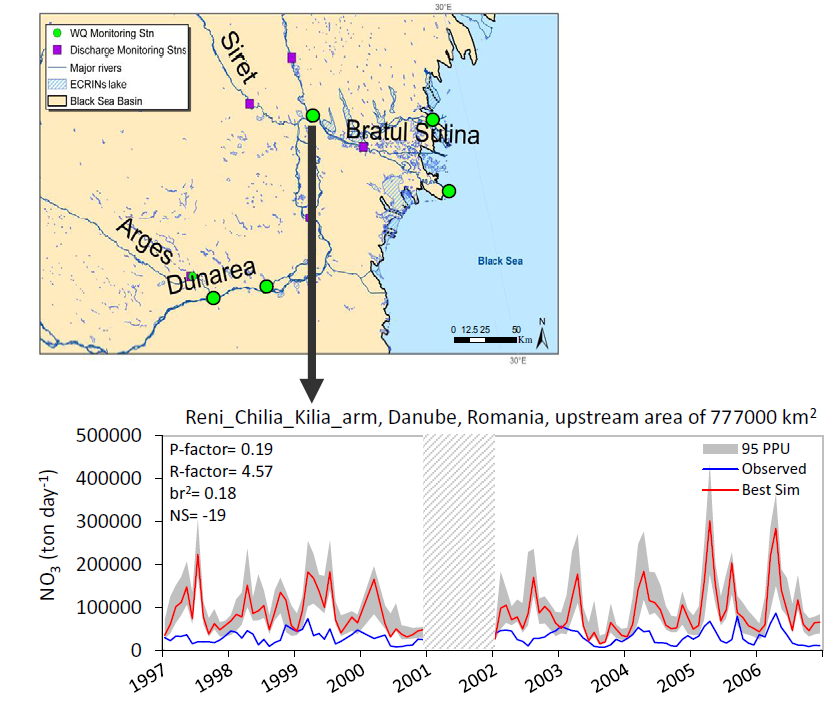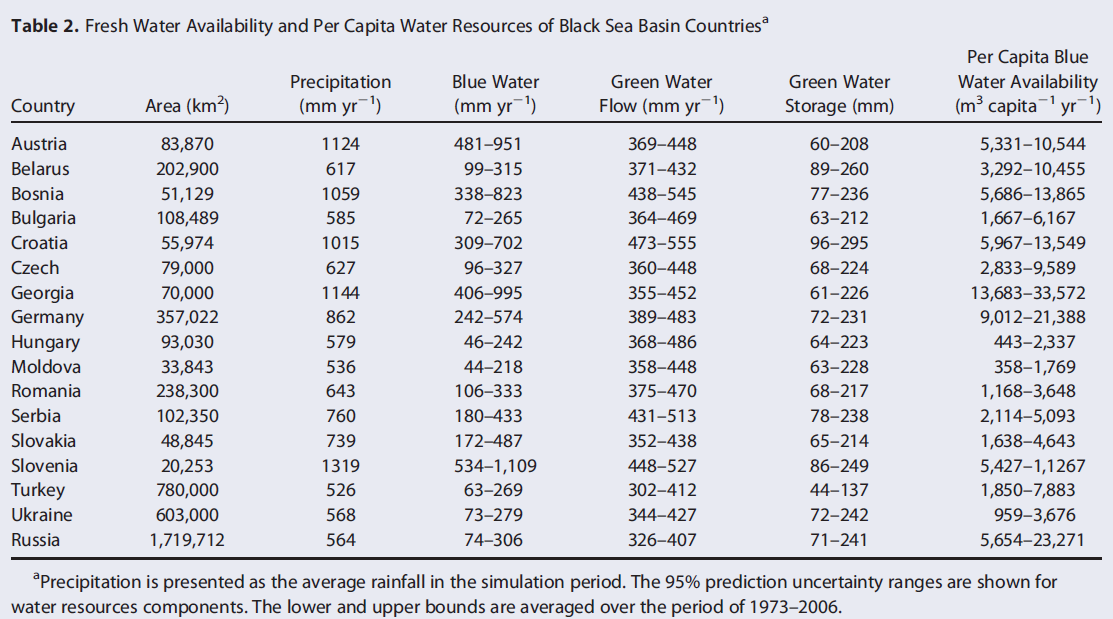Water resources of the Black Sea Basin at a high spatial and temporal resolution
Balck sea water resources

The pressure on water resources, deteriorating water quality, and
uncertainties associated with climate change create an environment of conflict
in the large and complex river system. The Black Sea Basin (BSB), in
particular, suffers from ecological unsustainability and inadequate resource
management, leading to severe environmental, social, and economic problems.
Quantification of water resources in Black sea
The Black Sea Basin (BSB), in
particular, suffers from ecological unsustainability and inadequate resource
management, leading to severe environmental, social, and economic problems. To
better tackle the future challenges, we used the Soil and Water Assessment Tool
(SWAT) to model the hydrology of the BSB coupling water quantity, water
quality, and crop yield components. The hydrological model of the BSB was
calibrated and validated considering sensitivity and uncertainty analysis.
River discharges, nitrate loads, and crop yields were used to calibrate the
model. Employing grid technology improved calibration computation time by more
than an order of magnitude. We calculated components of water resources such as
river discharge, infiltration, aquifer recharge, soil moisture, and actual and
potential evapotranspiration.
Furthermore, available water
resources were calculated at subbasin spatial and monthly temporal levels.
Within this framework, a comprehensive database of the BSB was created to fill
the existing gaps in water resources data in the region. This project provided
the basis for further research on the impacts of climate and land-use change on
water resources in the BSB.
Map of nitrate leaching from the bottom of
the root zone. The image mostly reflects nitrate leaching from the organic
constituent of the soil and underestimates the leaching of nitrogen due to
excess fertilizer application and application of manure.

